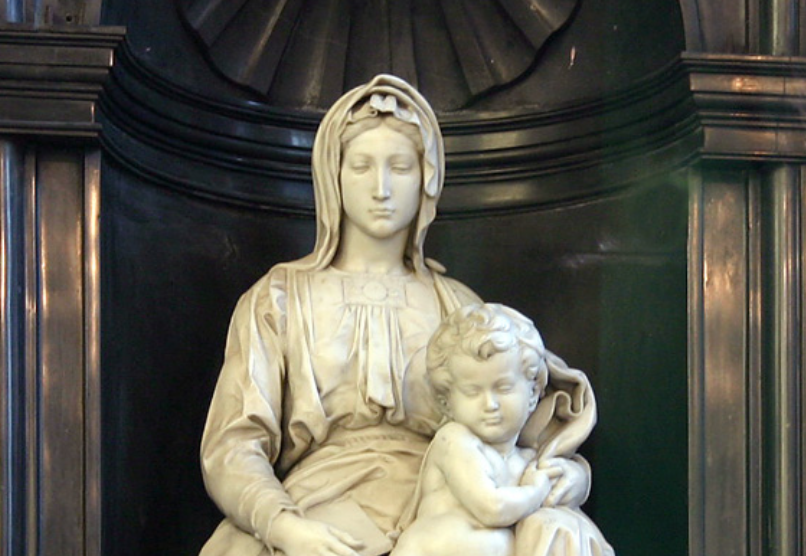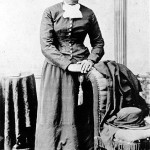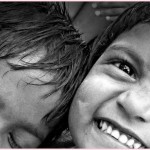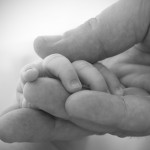
Liberation theology is a theology of self-determination.
In Mujerista Theology: A Theology for the Twenty-First Century, Ada Maria Isasi-Diaz writes that, “Liberation is not something one person can give another.” Instead, liberation is “a process in which the oppressed are protagonists” (1). Gustavo Gutierrez echoes this in A Theology of Liberation, saying that, “We will have an authentic theology of liberation only when the oppressed themselves can freely raise their voice and express themselves directly and creatively in society and in the heart of the People of God, when they themselves ‘account for the hope’ which they bear, when they are the protagonists of their own liberation” (174).
What this means is that, to be authentic, the people creating the theology should be the ones seeking liberation. A liberation theology for the poor, for example, will be inauthentic if it is controlled and dictated by the rich. A liberation theology for transgender people will be inauthentic if it is controlled and dictated by cisgender people. The whole point of liberation theology is to empower the marginalized and the oppressed to rise up and claim their voice, their destiny, and their God-given right to speak about God from their own unique perspective.
Liberation theology welcomes the marginalized and the oppressed like Jesus welcomes the children, saying, “Let them come to me, and do not hinder them, for the Kingdom of God belongs to such as these” (Mark 10:14). The Kingdom of God is not just for the white person, for the male person, for the able-boded person. The Kingdom of God is for everyone, for everyone of every age and gender and sexuality and race and ability and financial status.
The Kingdom of God is the kingdom that liberation theology proclaims. It is a prophetic critique against the privileged and the oppressing, those who — like the disciples around Jesus — want to keep away the children, the misfits, the pariahs. Liberation theology aims to awaken the privileged and the oppressing to the reality that they have no monopoly on the right to speak about God. Everyone has that right. And no one — especially the privileged and the oppressing — speaks about God from an objective, neutral point. Our fingerprints are all over our own ideas, and it is the privileged and the oppressing who — accustomed to having and keeping the power to speak about God to themselves — most want to deny that.
If, then, liberation theology needs to be from the ground-up, needs to give the marginalized and the oppressed the chance to self-determine (and restore their right to do so), that means child liberation theology will only be fully authentic when it is created by children themselves. If a liberation theology for the poor will be inauthentic if it is developed by the rich, then a liberation theology for children will similarly be inauthentic if it is controlled and dictated by adults.
But this creates a problem for adults like myself who believe in the importance and significance of creating a child liberation theology. Because the very reason why this theology is so important, so significant, and especially so necessary, is because much of the Church today — and much of the Church in the past — is held captive by the sin of adultism. Much of the Church is possessed by the ideological demons that whisper in our ears about the inadequacy of children. There is no space in many faith communities for children to do theological work. In fact, many faith communities would think this is an outright impossibility, even a blasphemous heresy. Theology is for adults, not children. Children are to sit quietly and absorb what the adults teach; they are to say, “Yes, sir,” and “As you wish.” Children are not to stand up and speak out and do theology loudly and joyfully alongside their adult brethren.
If there is no space in our faith communities where children can do theology, how can children create a theology that will liberate them? And if our faith communities do not even believe children can do theology, how will we ever get to the point where a space for children’s own theological work exists in the first place?
This is the most significant challenge, then, with which we adults who believe in child liberation theology must wrestle. We must develop a child liberation theology such that children will be liberated to the point that they can rise up and seize their right to do that theology themselves. As adults, we are — in relation to children — those in power. Yet we must use our power not to increase our privilege and opportunities to oppress but rather to systematically empty ourselves of that power and give it to children. This is a process that Ada Maria Isasi-Diaz speaks of in Mujerista Theology:
In a liberative use of power a dominant agent exercises power over a subordinate agent for the latter’s benefit. However, the dominant agent’s aim is not simply to act for the benefit of the subordinate agent; rather the dominant agent attempts to exercise his power in such a way that the subordinate agent learns certain skills that undercut the power differential between her and the dominant agent. The liberative use of power is a use of power that seeks to bring about its own obsolescence by means of the empowerment of the subordinate… In a liberative use of power, the learning of skills by the subordinate agent is a matter of taking power, of becoming self-defining and self-actualizing. It is precisely because of this that the power of the dominant agent becomes obsolescent, non-operative (119-20).
This is the model that child liberation theology must follow in its preliminary stages. In these preliminary stages, adults like myself must never lose sight of the end goal: to equip children to take this theology into their own hands. As such, it is inherently a theology of praxis: every ideological nook and cranny should be practical, should be aimed towards liberating children in the here and now, should be aimed towards liberating children so that they can seize their God-given right to speak about God from their own unique perspective.
Only then will child liberation theology be successful. And only then will child liberation theology have truly begun.
For adults, the end of child liberation theology is children beginning it.












